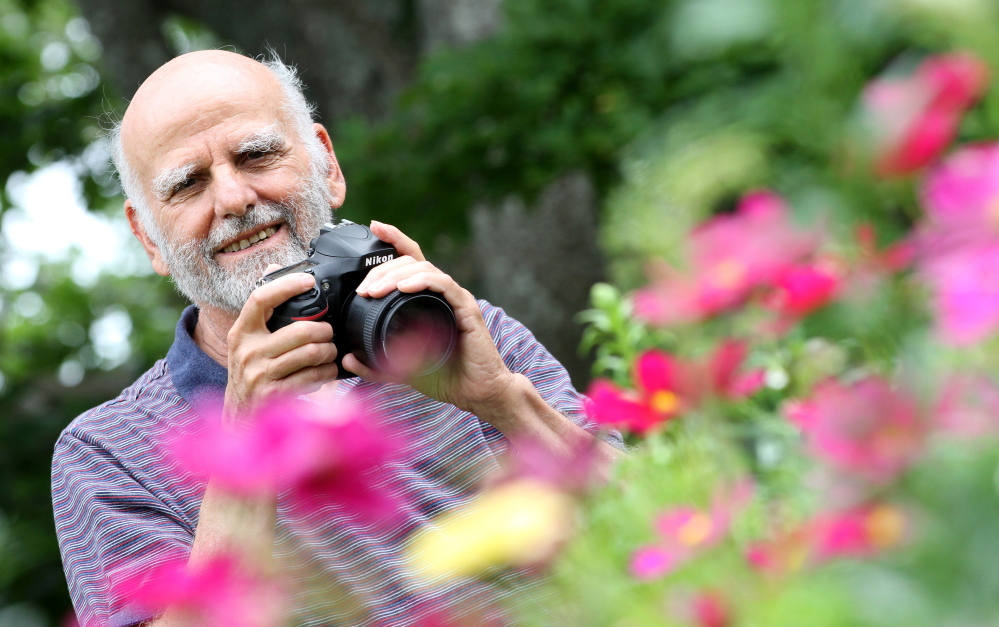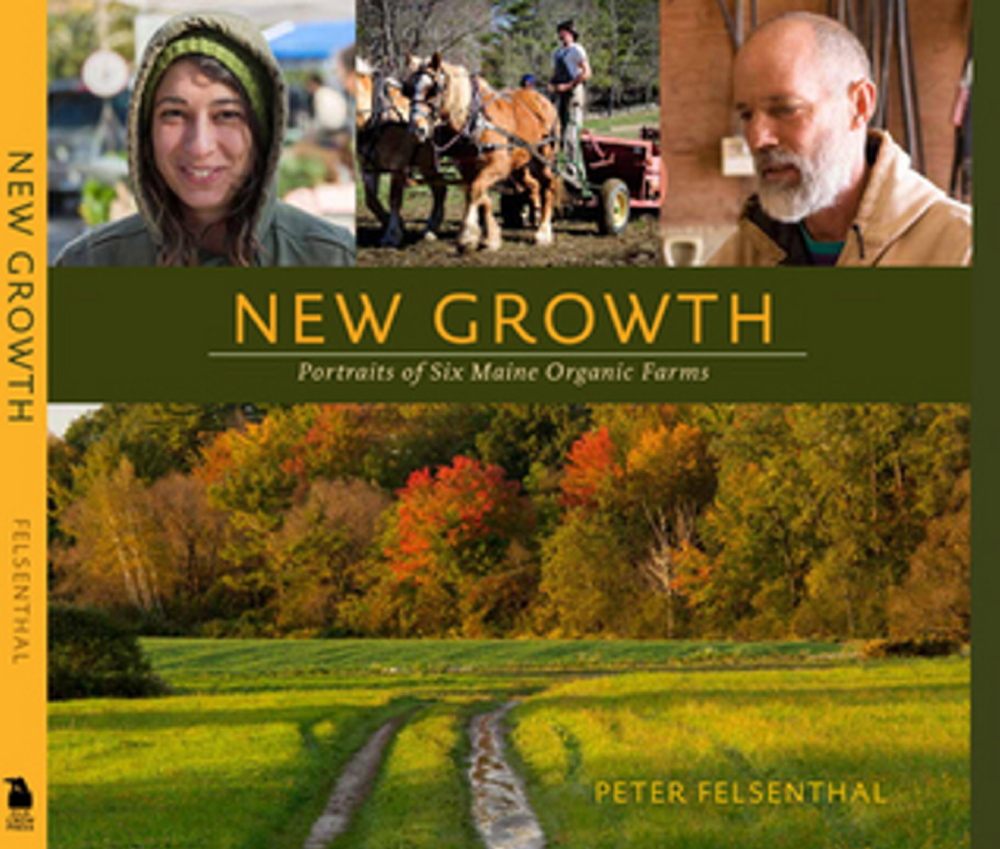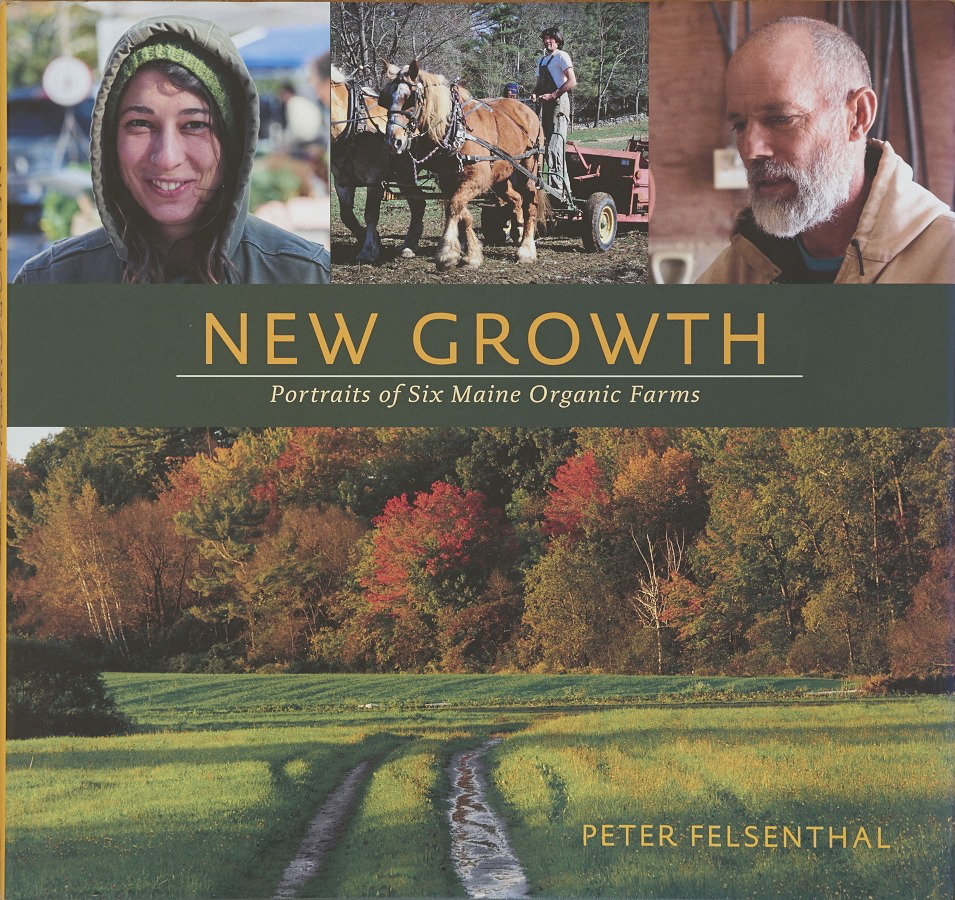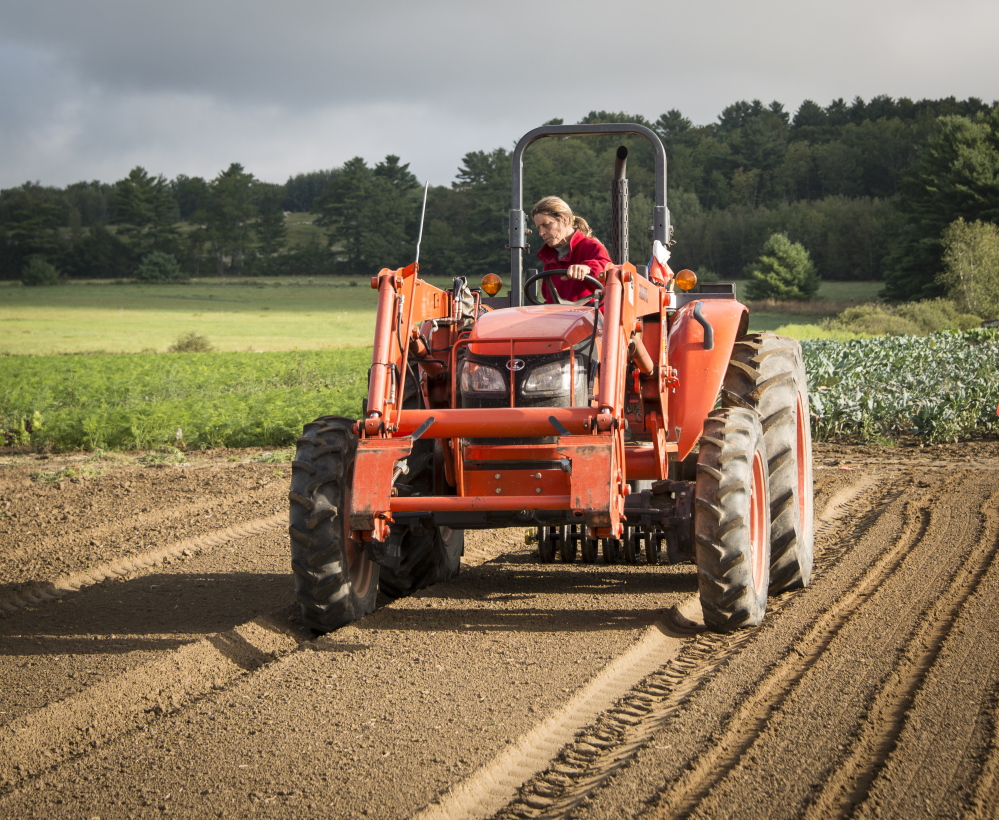Peter Felsenthal is not on any payroll for his photographic endeavors, but that’s hardly the point. For his book “New Growth,” the 83-year-old retiree spent a year visiting six Maine farms, all organic, some fairly close to his island home near Boothbay, some a good drive away.
He’d visit once a month, following the farmers at their work, then published his sumptuous coffee table book about the farms last year. We called him up to talk poetry, the role kitchens play in farmers’ lives and the hard work he witnessed on those six farms.
BACK STORY: Felsenthal studied physics in college and worked with photography while doing scientific research in a lab at MIT. It wasn’t for fun (he’d done that as a boy) but because he was trying to push film to its limits. The research was “a bit classified at the time” and involved reading a lot of technical papers from Kodak. “I had to know a lot about film’s properties.” He worked as an engineer and physicist. As a retiree, he’s taken a number of courses on digital photography, including at the Maine Media Workshops in Rockport. He has also published a volume of poetry. “I think I’m a better photographer than poet,” he said. (This spring he earned an award for best coffee table book from the Independent Book Publishers Association.)
WHY MAINE? His first sailing trip to Maine was in 1954, and it was memorable because it coincided with the arrival of Hurricane Carol to the state. He, his girlfriend and another couple were on their way back from Campobello when Carol hit. They ended up taking shelter in Jonesport. “Our rig had failed,” he said. Were they in serious danger? “We probably were, but we were too young and dumb to know it.” Over the years, he came back regularly with his family to charter sailboats for vacation. He and his wife, painter Jennifer Litchfield, retired to Maine from Westport, Connecticut, about 20 years ago.
FINDING FARMERS: The idea to chronicle organic farmers at work came to him, he said, in a “vague sort of way” over a period of a few months. He wanted to show the beauty and the grittiness – the work behind the romanticized aspects of making a living on the land. How did he find his subjects? Simple: he browsed at his local farmers markets in Boothbay and in Brunswick. Jan Goranson of Goranson Farm in Dresden was the first one he appealed to. Then he found horse-powered Buckwheat Blossom in Wiscasset; Balfour, a dairy farm in Pittsfield; and Fuzzy Udder, a creamery in Whitefield. Two vegetable farms are also featured, South Paw in Freedom and Six River in Bowdoinham.
AT ANY AGE: Launching a big project like this, involving rising at 3:30 a.m. on a cold winter’s night to get to the farm in time for milking is not exactly playing bridge or bird watching. But only one of his subjects ever remarked on his age (“His comment was ‘You’re like a farmer I know up the road who is in his 80s and still very active.’ “) And, as Felsenthal points out, stereotypes are just that. He knows because he too made assumptions about aging. “That’s what you do before you get there,” he said. “I used to joke with my friends that we’d sit on the front porch in our rockers when we are in our 80s, and that’s not the way I feel (now).”
HOW DO YOU FEEL? “I still feel quite passionate about things. I was crying about a poem I read this morning.” The poem was by a Russian writer named Anna Akhmatova. “No, crying is the wrong word,” he added. “I was very emotional. And I am grateful for that. I am glad I can be moved.” He’s been interested in growing food since he was a child tending his parents’ victory garden outside of Philadelphia; seeing organic farming – the only kind he knew as a boy – make a comeback has been such a pleasure.
ALL DIGITAL: Speaking of smashing stereotypes, Felsenthal is decidedly not old-school about his photography. He’s all digital, all the time. “I do it all dry,” he said. He had plenty of darkroom time in his youth, and he can derive just as much of the Zen-pleasure of losing himself in the computer as he did in the dark surrounded by chemical baths. The photographs for “New Growth” were taken with two Nikons and “a little Ricoh.”
SECRET SEAT OF POWER: He tried to get some shots in kitchens at each farm, “because in many of them, the kitchen is still the seat of action. It’s where everybody gets their orders in the morning.”
TOIL IN THE SOIL: The physicality of farming made a powerful impact on him. “I am a guy who made his living sometimes in a laboratory but most of the time sitting at a desk pushing paper or designing things on a computer,” Felsenthal said. “Here are people making a living putting their body and mind to work at the same time in a very basic way. Most of them have college degrees. There are not one of them dumb and they work like mad.”
Send questions/comments to the editors.







Comments are no longer available on this story